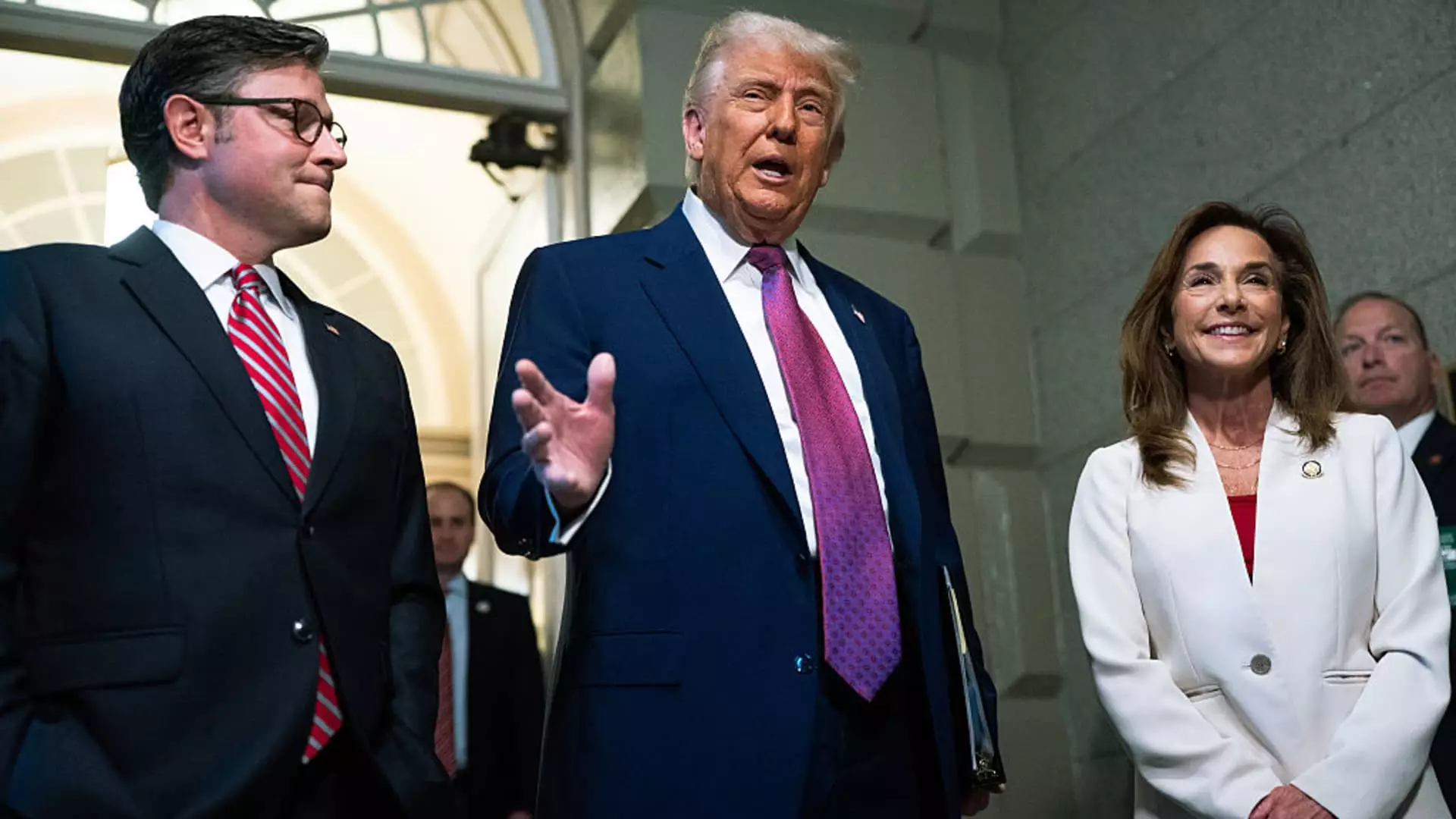In a striking display of partisan allegiance, the Republican majority in the U.S. House of Representatives recently ushered Donald Trump’s ambitious tax bill through with a razor-thin margin of 215-214. This legislation, touted as “big and beautiful,” reflects a broader trend in contemporary American politics—a movement driven by an agenda that prioritizes the affluent while undermining essential safety nets for society’s most vulnerable. Although Republican leaders herald this moment as a critical triumph, it is imperative to scrutinize what this bill truly accomplishes: a promising facade concealing a harsh reality of inequality.
It is disheartening to see that every Democrat opposed the bill, reinforcing a division that stymies bipartisan collaboration on key issues. Notably, even some Republicans, like Warren Davidson of Ohio and Thomas Massie of Kentucky, could not lend their support, questioning the viability of a package that ostensibly aims to stimulate economic growth. The inclusion of amendments that placate various factions within the party may have facilitated this narrow passage, but such compromises disregard the ethical implications of prioritizing partisan politics over people.
The Detrimental Impact on the Working Class
Amidst the glimmering promises of tax cuts and economic stimulation lies a disturbing revelation from the nonpartisan Congressional Budget Office: households in the lowest decile of income distribution stand to lose resources, while the highest earners experience a windfall. This divergence raises substantial concerns regarding the philosophical underpinnings of the bill. Rather than fostering an equitable economic boom that lifts all boats, it perpetuates the existing wealth gap. For a government that purports to be of the people and for the people, this is a glaring betrayal of democratic ideals.
Republican leaders, including House Speaker Mike Johnson, emphasize that these tax changes stand to “kick-start our economy.” However, such rhetoric falls short when one examines the underlying mechanics within the proposal. Work requirements ramped up for Medicaid recipients compromise access to healthcare for those who are already struggling. Is this truly the means by which we envision a thriving society? An approach that penalizes hard work among the vulnerable while liberating the wealthy from their fiscal responsibilities can hardly be called progressive.
Marketplace Certainty or Corporate Favoritism?
Mike Lawler’s assertion that the voted-upon tax bill offers “certainty in the marketplace” is steeped in the language of corporate favoritism. The four-fold increase in the SALT deduction cap—from $10,000 to $40,000—is not merely an innocuous change. It is a strategic maneuver designed to cater predominantly to wealthier taxpayers who can afford to itemize deductions. Such preferential treatment reinforces the notion that the bill was not crafted with the struggles of everyday Americans in mind, but rather shaped by the interests of powerful lobbying groups—an example of policy dictated by privilege.
For politicians to claim victory by giving in to these vested interests only serves to underscore the disconnect between lawmakers and their constituents. The consequences are grave; while some may boast about this newfound certainty for affluent taxpayers, countless working families will suffer as the rug is pulled from beneath them. In an economy that increasingly relies on consumer spending, prioritizing tax relief for the wealthy over the needs of the working and middle classes is a perilous gamble.
Long-Term Consequences: The Fiscal Reckoning Looms
What’s more troubling is the market reaction to this legislative belly flop. With projections indicating a spike in federal deficits and an worrisome outlook for long-term fiscal health, this tax bill may ultimately spell disaster. The recent tumble in the markets, spurred by anxiety regarding uncontrolled spending habits, showcases a poignant truth: the consequences of this legislation will resonate far beyond partisan cheers in the House. A government that fails to reign in its fiscal irresponsibility is one that jeopardizes the economic future for all, leaving generations to grapple with the aftermath of reckless policymaking.
As the Senate prepares to take up the bill, it’s crucial for lawmakers to reflect on the integrity of their actions. Will they commit to an economic agenda that ensures growth is shared amongst all citizens or will they remain ensnared in the allure of short-term victories? The choice is not merely political; it is fundamentally moral. In this era of growing disparity, the time for true progressivism is now, and it is the responsibility of representatives to protect the rights and resources of all, not just the privileged few.



Leave a Reply